In 1942, the Hershey Hotel Was a Chocolate-Scented POW Camp
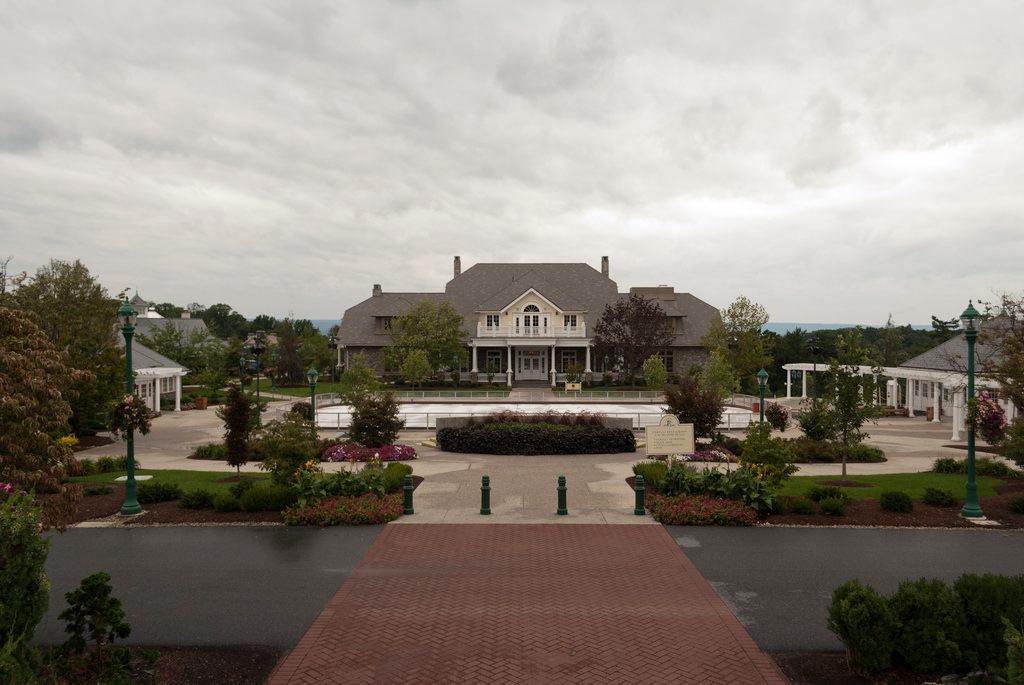
Hotel Hershey in Pennsylvania. (Photo: Matt Chan/flickr)
On a damp November night in 1942, eight Nazi collaborators and their families arrived in Hershey, Pennsylvania, to check into a sweetly arranged prison.
Escorted by agents of the U.S. State Department and the Pennsylvania Motor Police, their caravan of cars wound up a hill past hastily assembled guard shacks and a barbed wire fence. The automobile passengers had difficulty perceiving the incongruity of their destination—a five-story brick edifice with a Spanish-style tile roof, hundreds of windows, wide open terraces and carefully manicured gardens overlooking dairy farms, a school for orphans, a large factory and a blacked-out company town. This was a prison unlike any other, and it was to be their new home.

After succumbing to a German offensive in the spring of 1940, the French government agreed to an armistice that nominally kept France and its colonies intact, even as her capital became occupied territory and many of her citizens Nazi captives. A collaboration regime governed the unoccupied portion of the state from the town of Vichy, as Free French forces vowed to carry on the fight in France’s colonies.
The United States initially granted Vichy France full recognition as Franklin Roosevelt sought to neutralize French military assets and encourage opposition to the Nazi occupation force in northern France. From the outset, however, American officials were distrustful of the Vichy French diplomats sent to the United States.
Vichy France’s ambassador to the U.S., Gaston Henry-Haye, was dining at the Chinese embassy on November 8, 1942, when news reached him about Operation Torch, the Allied invasion of French North Africa. Four days later Germany invaded the remainder of France to protect its southern flank, and the Vichy regime was compelled to hand over its American diplomats to the Nazis. Given the situation of these citizens, Secretary of State Cordell Hull began reconsidering the status of the Vichy officials on American soil, even though France and the U.S. were not technically at war. Henry-Haye and his compatriots soon found themselves in a strange kind of diplomatic limbo, fated to become pawns in the increasingly volatile fight between Axis and Allies.

Vichy France Ambassador Gaston Henry-Haye. (Photo: Public Domain/WikiCommons)
Ten years earlier it was not war but the state of economy foremost in the minds of Americans, including confectionery king Milton Hershey and those who inhabited the factory town he built. Because its products remained relatively affordable, the Hershey Chocolate Corporation fared better than many companies during the Great Depression. Demand for construction workers and prices for building materials were plummeting, so Milton Hershey seized the opportunity to serve his altruism, his penchant for a bargain and his dream of building a grand hotel on Hershey’s highest point. In spite of its scale, its unique design and its luxurious furnishings, the Hotel Hershey was completed in just 18 months and opened in 1933. Hershey defended its extravagance: “Other men have their yachts to play with. The hotel is my yacht.”
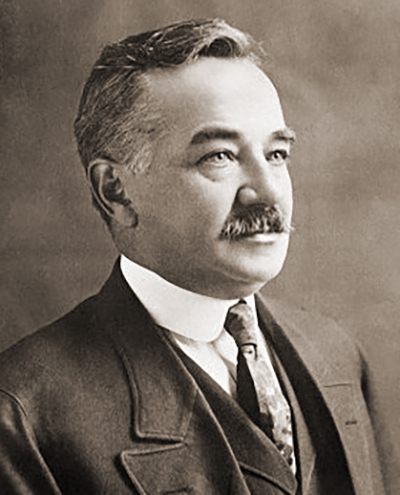
Milton Hershey in 1905. (Photo: Public Domain/WikiCommons)
With war looming in the late ’30s, Milton Hershey shrewdly sought out government contracts to develop cocoa-based products specifically for military rations. The relationships developed in this arrangement may be what led Hotel Hershey general manager Joseph Gassler to extend an extraordinary invitation to Secretary Hull in regards to his Vichy French problem on Nov. 12, 1942:
I have the honor to advise you that Hotel Hershey has placed its facilities at your service … I shall be very happy to have these people as our guests and assure you, my dear Secretary, that we will do our utmost, in every respect, to give the high standard of service which the famous Hotel Hershey knows how to give.
The specifics of his offer asked $7.50 per day to house adults and $4 for children and guards with the State Department picking up the tab for incidental expenses and gratuities. With the war pilfering both his customers and his staff, Gassler, who was also a close confidant to Milton Hershey, perhaps saw the predicament of the Vichy diplomats as an opportunity to improve his employer’s fortunes and standing. A mere two days later the New York Times published a large aerial photo of the Hotel Hershey under the headline, “Where French Diplomats Will Be Housed.”
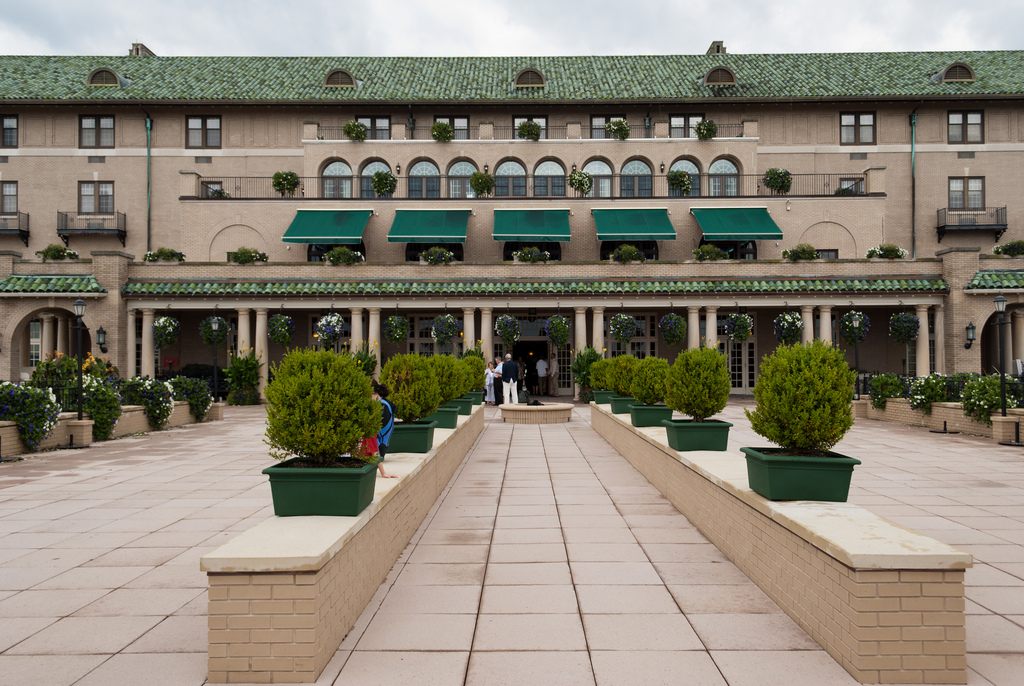
The second-floor entrance to Hotel Hershey. (Photo: Matt Chan/flickr)
The first group of detainees to arrive at the hotel included Henry-Haye, seven members of his Washington, D.C. staff and their families. For the next 10 months, as many as 94 French citizens—those the State Department deemed a security risk—attached to consulates in New York, Chicago and elsewhere had the opportunity to experience, in the words of the Times, “one of the most secluded vacation spots in Central Pennsylvania.” Although not allowed to leave unescorted, the French were able to avail themselves of the sprawling lawns, rose gardens, a nine-hole golf course, tennis courts, a game room and the large patio offering a stunning view of a nascent Hershey Park. A makeshift chapel offered Sunday mass, and a lycée gave the children some semblance of normalcy.
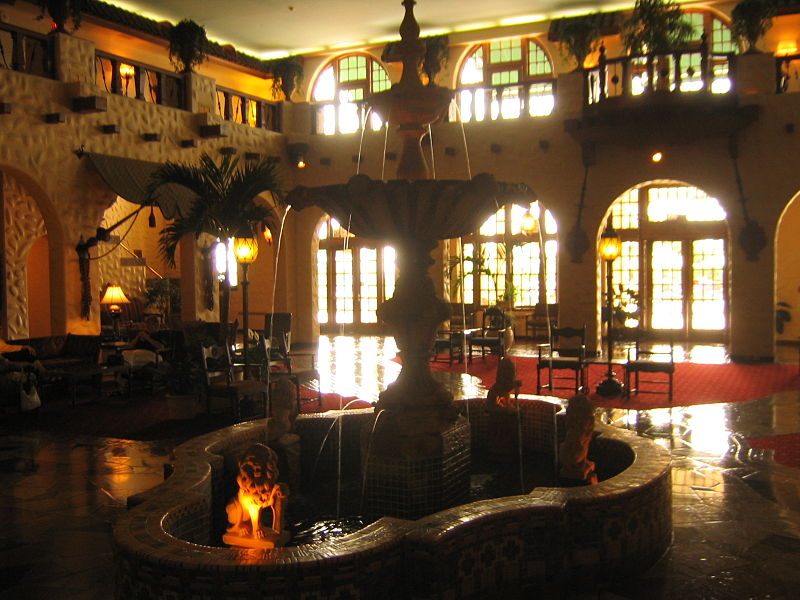
The fountain in the lobby of the Hershey Hotel. (Photo: Public Domain/WikiCommons)
Few of Hershey’s citizens knew much about what was happening on the hill above them, although two busboys at the time, John Vetrulli and his cousin William Cognoli, later recalled some details in a 1993 newspaper interview. The French dressed formally for meals, which often included Burgundy wine paid for by the U.S. government (the detainees paid for mixed drinks). Henry-Haye allowed his large Dalmatian to accompany him to the dining room. The children seemed happy enough, and Vertrulli even traded a stamp collection with one French boy for $10 and some French coins.
According to State Department reports, however, the adults among the detainees bristled at any attempt at control, “behaving like spoiled children … with utter disregard to the rules and regulations regarding their boundary limits.” The French made up excuses for doctor’s visits and shopping excursions, spoke disrespectfully with the guards and even vandalized hotel property. Swastikas appeared on the snow-covered lawns, and one gentleman who used the caddyshack as a makeshift art studio was found to be painting a portrait of Philippe Petain, the collaborationist head of Vichy France.
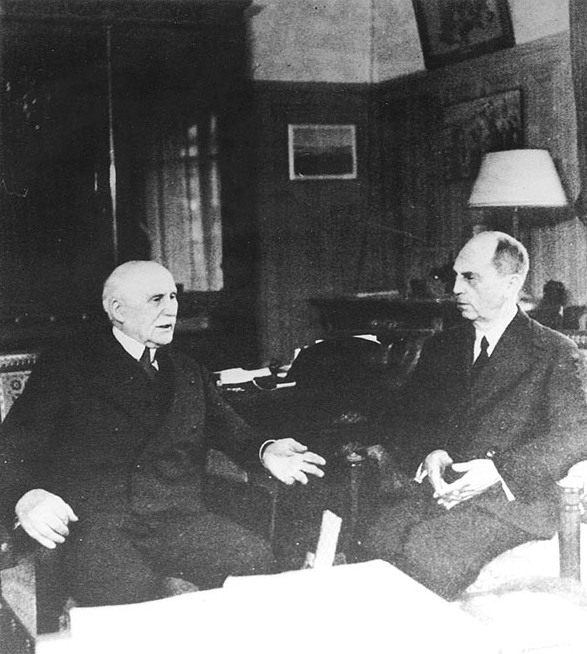
Philippe Pétain, Chief of State for Vichy France, at his final meeting with the departing American ambassador William D. Leahy, 1942. (Photo: Public Domain/WikiCommons)
Only Henry-Haye and 16 others remained by September 30, 1943, as many of the French, particularly those with families, had agreed to work with the Allies and were released. No longer wishing to bear the expense for so few prisoners, the State Department moved the Vichy diplomats to a smaller establishment in Warm Springs, Virginia, closer to other detained Axis officials. A prisoner exchange with Germany did not happen until early 1944 in Lisbon, where the well-fed Henry-Haye commented to one American just out of a Nazi internment camp, “You have indeed lost a lot of weight.” Although he was re-appointed mayor of Versailles upon his return, Henry-Haye was barred from public office after the war.
On October 1, 1943, the Hotel Hershey immediately re-opened its doors to the public. After several renovations in the intervening years, including the 2001 addition of a spa offering chocolate-inspired treatments, the Hotel continues to offer a one-of-a-kind experience to those who can afford its luxuries. While many went without the luxury of liberty during World War II, this episode in Hershey showcased the United States’ commitment to diplomacy during a time when war overshadowed other ideals and notions of comfort.


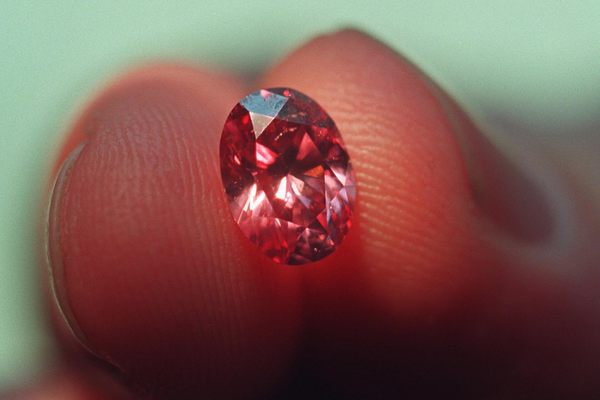
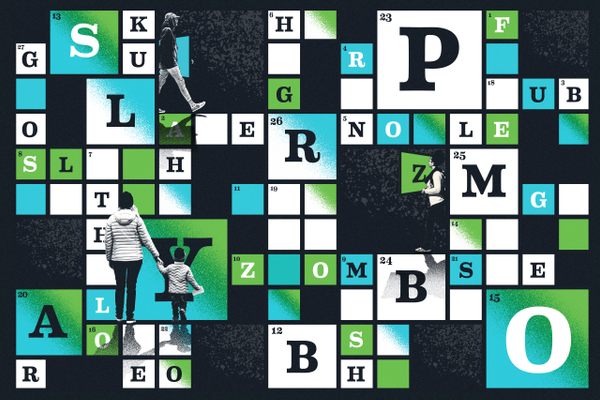



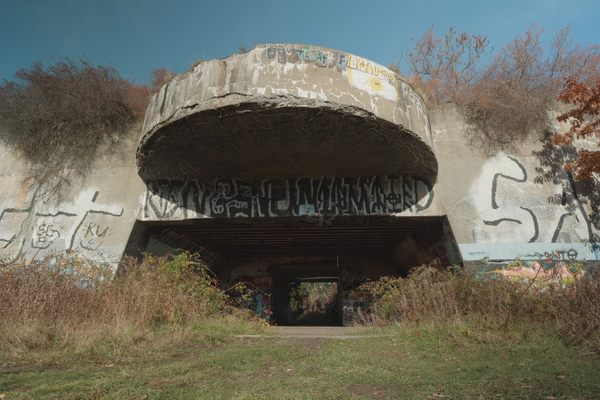

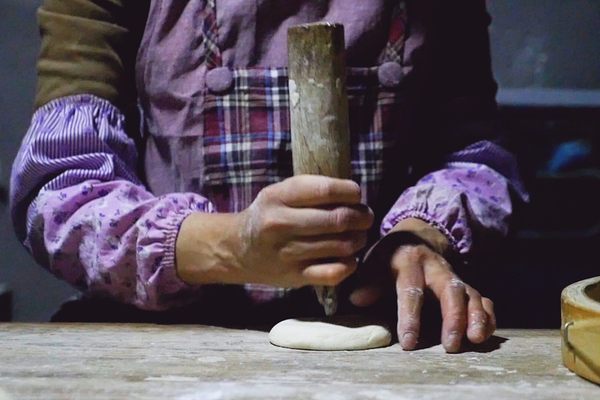
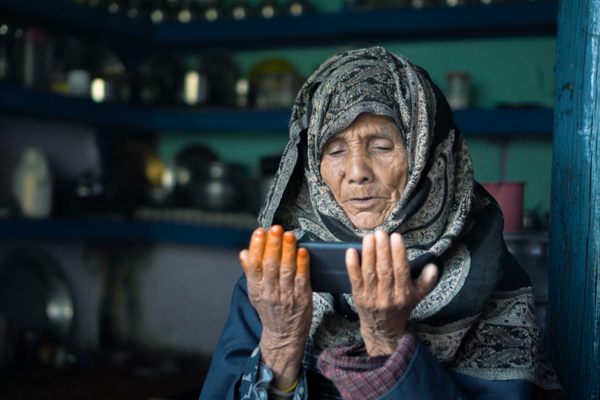

Follow us on Twitter to get the latest on the world's hidden wonders.
Like us on Facebook to get the latest on the world's hidden wonders.
Follow us on Twitter Like us on Facebook